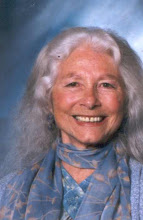The Monday after the Friday we got our new furnishings, Werner announced that we were going to have an Grand Opening party to celebrate LAM’s San Francisco branch office on the following Thursday after business hours, at 5:00. Jim and Angie told us they were having it catered; they danced up and down in anticipation of showing off the office and décor. We were ordered to dress our best for the account managers and officers from the agencies who bring us business.
“Why Thursday?” I asked Werner.
“Jim says so. Most agencies close early or are short-staffed
on Fridays,” he explained, “So . . .”
“So, it’s after
hours. Will we get overtime?” Werner looked at me, huffed, turned his back
and walked away. I guessed NO.
But on Wednesday, disaster struck. I
opened a drawer in my new desk and the front came off. Evidently the office supplies and insurance
forms were too heavy for the cheap, pine construction. Werner told me I pulled it out wrong; if I’d
done it right, he said, this wouldn’t have happened. How many ways, I asked him, are there to open
a drawer?
“It has to be fixed fast, before open house!”
he whined, mopping his sweaty red face with a fistful of Kleenex he’d snatched
from a box Candy kept on her desk, and throwing them back on it when he finished.
Candy
sneered, “Ewww, ugh.” Using a clean tissue, she swept them into a waste paper
basket. She left the office and returned
with paper towels and soap, and scrubbed the top of her desk. Werner called the furniture company and they
sent someone out. The guy told him he
couldn’t fix the drawer in the office but had to take the desk back to the
factory. There was no guarantee it’d be fixed by Friday. Werner almost had a heart attack,
“The whole friggin’
desk?” His jowels shook.
“ ‘Fraid so, sir.”
He stomped around and flapping his arms like
Ralph Kramden. Candy and I sniggered. But, he
calmed down when the guy said,
“We will replace it
with a new one. We can deliver it by the
end of the day.”
So I ended up with a new, new desk. I filled
the drawer with the same stuff and gingerly opened it. It held.
Thursday morning, Candy and I cleaned off every
surface in the file room, moving files and supplies. The caterers showed up with snack trays loaded with shrimp canapés, cubes of ham and
cheese speared with colored tooth picks, chips and dip; crackers; small, bacon-wrapped wienies;
and celery and carrot sticks with dip.
Werner saw that the hutch was filled with scotch and vodka to supplement the Bailey's. Besides finger-food, the caterers
set out buckets of ice and champagne.
At 4:45, Werner siad we could quit
working and to fix the phones so all the calls would go to an off-site, message
taking service. (The era before message
machines, voice mail, etc.) Angie wore a
frilled, low-cut white blouse, a pencil-slim, black skirt, and 6 inch steel-tipped heels; her hair up in
a loose chignon. We stood in a “receiving line” with Teddy, Jim, and Angie at the open office door. Guests trickled in at first, then descended in
bunches. The women and some of the men complimented
the LA contingent on the new office, running their hands over the furniture
and stroking our gold, crushed velvet typing chairs.
 |
| North West view |
“And
the view! Come look at the view!” someone shrieked.
“Look at it from
Werner’s office, then from Teddy’s!”
The view at night was spectacular, I had to admit. The dark night sky, the streets from East to
West lit up from the Bay to the Ocean; the lights on the Bay Bridge; the head-
and taillights from traffic moving in all directions. And practically every window in nearby hi-rises
glowed.
"You girls don't know how lucky you are to be working in such a lovely office with such a lovely
view!"
 |
| Bay Bridge looking East |
"You girls don't know how lucky you are to be working in such a lovely office with such a lovely
view!"
Jim held court, going into great detail about how he
and Angie had driven to the Mission District where they found the desks,
tables, chairs and hutch at a discount office furniture store . I could tell by the looks and inflections
that the comments were insincere, even sarcastic. An account rep I knew looked at me sideways,
half-laughing. “Are they serious?” she
said. I told her to be nice. I had to work here.
Candy and I ended up like hired help (we were,
anyway). People asked us to fill their
paper plates with this or that and pour drinks.
We had no time to eat but when the guests thinned out, we dove in. Finally, we saw the last of them out
the door. Jim
suggested to Werner that we propose a toast to our successful open house. The good stuff was gone, all that was left
was Bailey’s Irish Cream so we filled paper cups with it and raised them: "Cheers!" Then Jim, Teddy and Angie left to fly back to LA.
“Who’s
going to clean up this mess?” Candy asked.
“Oh,
the janitors,” Werner assured us as he drew on his suit jacket and bustled out
the door.
“Okay,
then, let’s split from this banana stand!" Candy shouted.” It was almost seven
o’clock.
Next up:
Chapter 10, Part Three: Post-party depression. Werner talks about his girlfriend: TMI!
I refuse an archaic forms processing method, Werner threatens to fire me.



..jpg)








